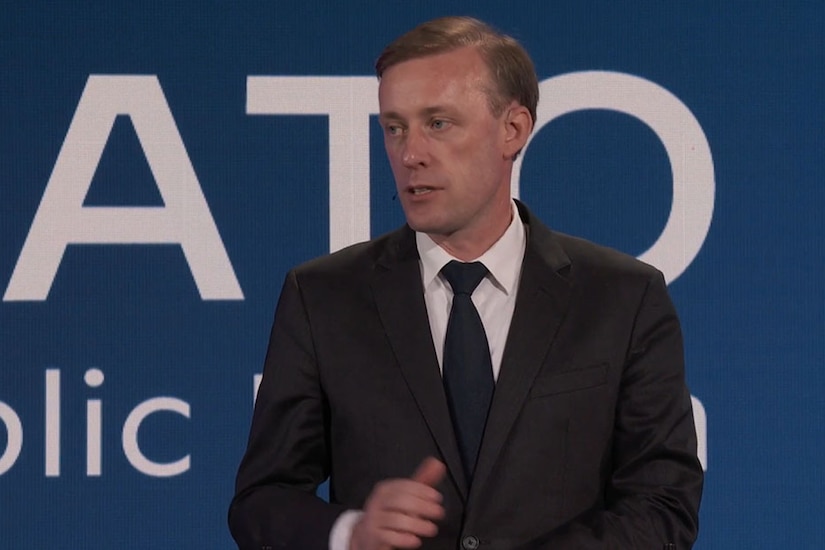A few months ago, Ukrainian soldiers on the front lines were running out of artillery shells and were having to ration them, said National Security Advisor Jake Sullivan today at the NATO summit in Washington.
“The situation looked extremely grim,” he said.
Then, security funding for Ukraine passed in Congress after a delay.
Since then, the picture has changed considerably. Russia’s offensive in the Ukrainian city of Kharkiv stalled out. Russia is continuing to throw wave after wave of men into the fight, making incremental gains at astonishing human and financial cost. By and large, the front lines have stabilized,” Sullivan said.
Ukrainian mobilization efforts have improved. Ukrainian units are building stronger fortifications and defensive lines, and day by day, they’re pushing back, he said.
“This is due to the people of Ukraine, to their sheer courage and commitment to their country and its freedom. But it’s also due to the support of the United States and nations around the world, including NATO allies,” Sullivan said.
The national security advisor said over the last few months, the United States has surged air defense systems, artillery rounds and long-range missiles.
The Ukrainians are employing these weapons with good effect in Russian-occupied areas of Ukraine, including in Crimea,” he said.
Allies have committed to collectively providing Ukraine with at least 40 billion euros worth of security assistance over the next year, including tanks, armored fighting vehicles, artillery, missiles, and a range of other capabilities that Ukraine needs to be able to affect effectively fight and win, Sullivan said.
The U.S., in partnership with allies, will provide Ukraine with air defense missiles and systems that are especially relevant to help protect Ukrainian forces on the front lines, civilians and the energy grid, he said.
Also, the United States, Denmark and the Netherlands have begun the transfer of F-16 fighter jets to Ukrainian forces, which will be operating in Ukraine this summer, according to a White House statement yesterday.
Sullivan said Russian President Vladimir Putin thinks he can outlast Ukraine and its supporters, and he’s taken steps to put Russia’s entire economy on a wartime footing with help from Iran, North Korea and China.
Russia’s unsustainable war spending masks underlying weakness and fragility, and the economic costs for Russia are mounting and will compound over time, he said.
Meanwhile, NATO allies have been making historic investments in their own defense industrial bases, he said, as well as increasing defense spending.
This year, Ukraine, with the support of the United States and other allies and partners, has made remarkable diplomatic progress as well, he said, including bilateral defense security cooperation agreements between Ukraine and some 20 allies, designed for long-term assistance.
“The road ahead will be challenging. President Putin is determined to keep trying to take over Ukraine, and countries like Iran, North Korea and China are cheerleading him. We’re clear eyed about all of that, but we are also clear eyed about Ukraine’s strengths and resilience,” he said.









